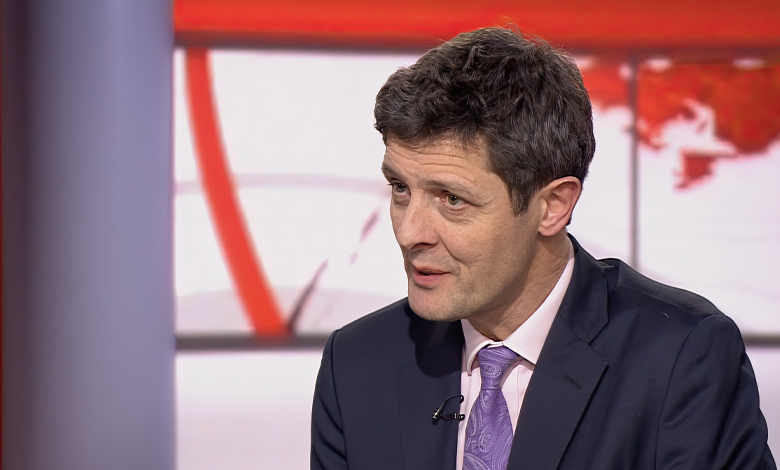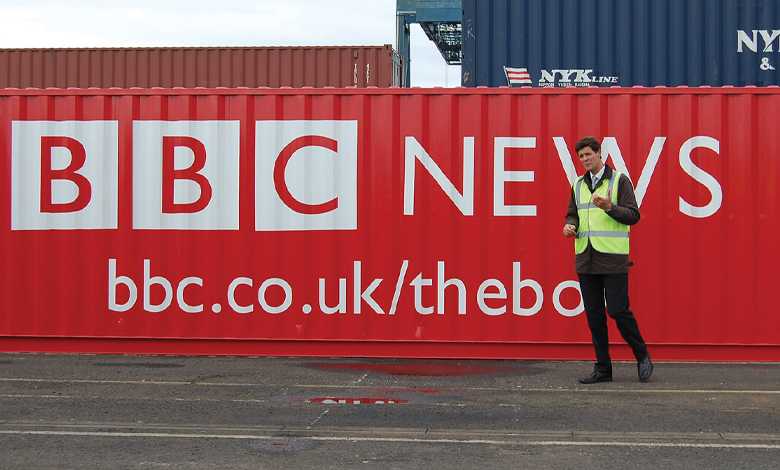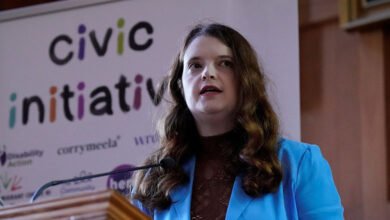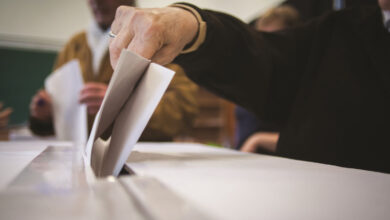People: BBC News health editor Hugh Pym

As the health editor at BBC News, Hugh Pym was a familiar fixture on many television screens throughout the duration of the Covid-19 pandemic. He talks to Joshua Murray about the evolution of journalism, his career highlights, and impartiality at the BBC.
Pym’s interest in journalism was piqued whilst at school, when he read an account of a journalist working in south Wales. “She was a graduate trainee and she explained that in the morning she covered the Magistrates’ Court, then went to a council meeting, then went off to a press conference at the rugby club, then maybe went to an agricultural event, before doing a theatre review in the evening. The sheer variety of this woman’s job is what fascinated me,” he explains.
Pym’s progression through university and into the world of journalism was not straight forward. He admits that not wholeheartedly throwing himself into working with the student paper and radio station while studying at the University of Oxford hampered his pathway to employment. However, his persistence in taking up a postgraduate diploma at Falmouth Technical College (now Falmouth University) paid dividends, opening the door to work in radio.
“It was great in that it trained me in radio journalism and gave me the chance to work at a local radio station and gain some hands-on experience which is probably the most difficult thing for a young journalist. I then got the chance to work for Wiltshire Radio, an independent radio station near Swindon and they eventually took me on as a trainee journalist,” says Pym.
He further explains that he found inspiration in figures such as Sandy Gall at ITV News, and journalists like Martin Bell, Charles Wheeler, and Kate Adie, as he progressed.

Covering Covid
Pym’s reporting on the Covid-19 pandemic, an event which he describes as “completely unprecedented in our lifetimes”, led to him receiving of the British Journalism Review Charles Wheeler Award in 2020. However, he emphasises that the award is a shared effort, explaining that, as with most broadcast pieces, “it is all about teamwork, and there is a lot more to the gathering of a story than the person on-screen”.
He recounts being the first journalist to interview Margaret Keenan, the recipient of the first approved Covid-19 vaccine in the world in December 2020. “It was in the University Hospital, Coventry which had been asked by NHS England to find a first patient with the media present. Margaret was there, in her 90s and she was just amazing, wonderfully charming, and was really happy to take all of our questions.
“I was really conscious that this was a moment in history because whilst trials had been done on the vaccines, getting it approved and then into the arms of the public was a big moment.”
On the same day, Pym tells of his tweet about the second vaccine recipient and which led to his most viral social media moment, likely due to the fact that the recipient was a man named William Shakespeare who hailed from Warwickshire, the same home county of his namesake, the famous playwright.
“We have seen local papers fall back and struggle to compete with online. That important texture of journalism in every community has changed a lot and I hope that it can be saved and sustained.”
Reporting in Northern Ireland
Although the overwhelming majority of Pym’s career has been based in England, he spent a period of time covering the politics of Northern Ireland at the time of the Omagh bomb in 1998 and recounts the differing nuances which made complicated the reporting of political affairs compared with those in Britain.
“I remember the question at the time, in addition to the human tragedy, being about where this event left the Good Friday Agreement. I had to drop whatever story I was doing and go on air. That was what we did as political correspondents. I was then sent over to Northern Ireland in the subsequent days to report on the follow-up of the event and cover the politics.”
He has also covered health and social challenges in Northern Ireland, including problems with waiting lists.
A moment in history
The death of British Queen Elizabeth II saw a level of specialised coverage previously unseen for the vast majority of the broadcaster’s viewers, and was a historical moment for news presenters and the public alike.
Pym, who reported on the health of the Queen in the hours prior to the announcement of her death, explains: “We had been informed that day that doctors were concerned about the Queen’s condition at Balmoral. It was clear that something unusual was happening here. On the reporting side, it was important to ensure that the tone was right; I only made a brief appearance on the first day and it was all about getting the tone right, being responsible, not speculating whilst still giving people as much information as we could.”
Scrupulous impartiality
On the task of being an impartial reporter, Pym believes that: “From day one, you have got to be scrupulous in ensuring the impartiality of your coverage.”
In the 2001 general election, he was a candidate for the Liberal Democrats in North Wiltshire, a seat which is normally safe Conservative. Pym explains the transition from political activist to impartial journalist: “The key thing is how you conduct yourself once you join the BBC. There are some in the BBC who have been involved in one way or another in politics in a previous life. The key thing is that once you walk through the door, you uphold the BBC’s values of impartiality, fairness, accuracy, and understanding your key responsibility. You cannot remain active in any way once you join BBC News.”
The key thing is how you conduct yourself once you join the BBC. There are some in the BBC who have been involved in one way or another in politics in a previous life. The key thing is that once you walk through the door, you uphold the BBC’s values of impartiality, fairness, accuracy, and understanding your key responsibility.
He further explains the underlying personal traits which have helped him to success at the BBC: “The most important thing is that you work hard and are willing to go the extra mile to find out what is truly going on, whether it is making phone calls or whatever it may be. In addition to that, you have to have determination, curiosity, putting in the hours, not being put off by anything, and being prepared to ask the innocent question.
“It is all about that willingness to pursue the facts until you are satisfied that either there is no story or that there is one and that you want to get it out there.”
An evolving profession
On how the world of media has changed through his career, Pym says: “When I was a trainee journalist, we did our shorthand and law, so those basic skills have not changed. Research wise, there is a world of difference; we did not have any mobile phones or internet. To do our research we had to go to newspaper libraries or cuttings libraries and do a lot more work on the phone.” He further explains that he sometimes wonders “how we did it” by carrying out a similar scale of research without resources such as Google.
In addition to the tech revolution, Pym observes that independent local radio stations, which “used to rival the BBC” are now greatly diminished, as is local media overall. “A lot of them have since merged and they are much broader groups now,” he explains, adding: “We have seen local papers fall back and struggle to compete with online. That important texture of journalism in every community has changed a lot and I hope that it can be saved and sustained.”






